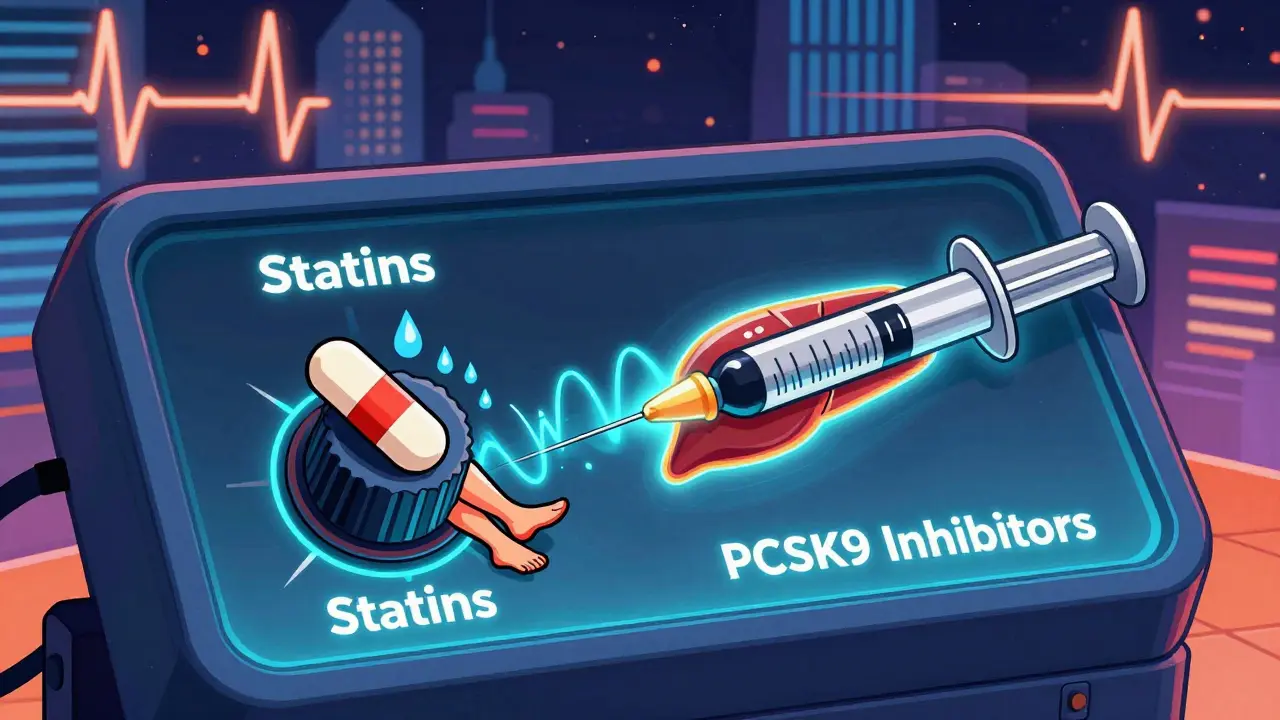Statins: What They Are, How They Work, and What to Watch For
If you’ve ever been told you need a statin, you probably wonder what the fuss is about. In plain terms, statins are pills that lower LDL (the “bad”) cholesterol by blocking the liver’s production of it. Lower cholesterol means lower risk of heart attacks and strokes, which is why doctors prescribe them to people with high cholesterol, heart disease, or diabetes.
There are several brands—like Zocor (simvastatin), Lipitor (atorvastatin), and Crestor (rosuvastatin). They all do the same job, but the dose and how your body reacts can differ. Most people take a statin once a day, usually at night because the liver makes most cholesterol while you sleep.
Benefits of Statins
Statins don’t just drop numbers on a lab report. Studies show they can cut the chance of a first heart attack by about 25% and reduce the risk of a second heart attack by up to 35%. They also help keep the arteries from getting clogged, which can improve overall blood flow.
Beyond heart health, some research hints that statins might lower the risk of certain cancers and slow the progression of kidney disease. While these extra benefits aren’t the main reason doctors prescribe them, they’re a nice bonus if you’re already taking the drug for cholesterol.
Common Side Effects & Safety Tips
The word “side effects” can scare anyone, but most statin users feel fine. The most reported issues are mild muscle aches, especially when you first start. If the soreness is persistent or severe, it could be a sign of myopathy—a rarer condition that needs a doctor’s call.
Other occasional complaints include digestive upset, mild headaches, or a slight rise in blood sugar. To keep risks low, always take the dose your doctor recommends, avoid grapefruit juice (it interferes with how the body processes many statins), and let your physician know about any other medicines you’re using.
Regular blood tests are key. Your doctor will check liver enzymes and cholesterol levels after a few weeks, then periodically afterward. If anything looks off, the dose can be adjusted or you might switch to a different statin.
Now that you know the basics, here are some of the most helpful articles on our site that dive deeper into specific statin topics:
- Zocor Side Effects: What to Expect and How to Ease Them – A quick rundown of what to look for with simvastatin and how to manage muscle pain.
- Buy Generic Ativan Online Safely (2025): Legal Steps, Prices, and Trusted Options – While not about statins, this guide shows how to navigate online pharmacies safely, a skill useful if you ever need to order a statin remotely.
- How and Where to Buy Propranolol Online Safely (Canada 2025 Guide) – Another example of safe online purchasing, relevant for anyone ordering prescription meds.
Remember, statins are a tool, not a cure. Pairing them with a heart‑healthy diet, regular exercise, and routine check‑ups gives you the best shot at staying healthy. If you’re new to statins, talk openly with your doctor about any concerns—most worries can be cleared with a simple conversation.
Bottom line: statins work, they’re generally safe, and the benefits usually outweigh the risks. Use them as part of a broader lifestyle plan, keep up with your labs, and you’ll likely see big wins for your heart health.
-
 VIEW POST
VIEW POSTStatins and Antifungals: What You Need to Know About This Dangerous Drug Interaction
Feb, 1 2026|9 CommentsStatins and certain antifungals can cause dangerous drug interactions leading to muscle damage. Learn which combinations to avoid, safer alternatives, and what to ask your doctor before starting treatment. -
 VIEW POST
VIEW POSTPCSK9 Inhibitors vs Statins: Side Effects and Outcomes
Jan, 20 2026|8 CommentsStatins and PCSK9 inhibitors both lower LDL cholesterol, but they differ in side effects, cost, and who benefits most. Learn which one fits your needs based on real-world outcomes and patient experiences. -
 VIEW POST
VIEW POSTStatins Explained: Zocor Uses, Benefits, and How It Lowers Cholesterol
Jul, 10 2025|11 CommentsGet a clear answer: what is Zocor used for? Learn about its role in lowering cholesterol, how it works, and when doctors prescribe it, all explained simply and accessibly.